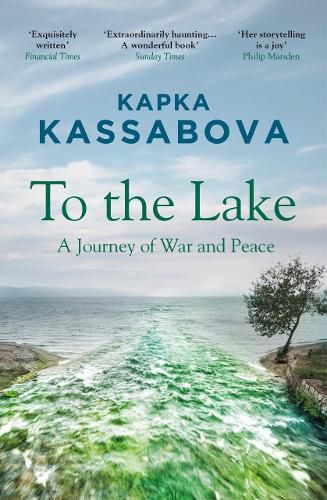Readings Newsletter
Become a Readings Member to make your shopping experience even easier.
Sign in or sign up for free!
You’re not far away from qualifying for FREE standard shipping within Australia
You’ve qualified for FREE standard shipping within Australia
The cart is loading…






A BBC Radio 4 Book of the Week
Lake Ohrid and Lake Prespa. Two vast lakes joined by underground rivers. Two lakes that have played a central role in Kapka Kassabova’s maternal family.
As she journeys to her grandmother’s place of origin, Kassabova encounters a civilizational crossroads. The Lakes are set within the mountainous borderlands of North Macedonia, Albania and Greece, and crowned by the old Roman road, the via Egnatia. Once a trading and spiritual nexus of the southern Balkans, it remains one of Eurasia’s oldest surviving religious melting pots. With their remote rock churches, changeable currents, and large population of migratory birds, the Lakes live in their own time.
By exploring the stories of dwellers past and present, Kassabova uncovers the human history shaped by the Lakes. Soon, her journey unfolds to a deeper enquiry into how geography and politics imprint themselves upon families and nations, and confronts her with questions about human suffering and the capacity for change.
$9.00 standard shipping within Australia
FREE standard shipping within Australia for orders over $100.00
Express & International shipping calculated at checkout
A BBC Radio 4 Book of the Week
Lake Ohrid and Lake Prespa. Two vast lakes joined by underground rivers. Two lakes that have played a central role in Kapka Kassabova’s maternal family.
As she journeys to her grandmother’s place of origin, Kassabova encounters a civilizational crossroads. The Lakes are set within the mountainous borderlands of North Macedonia, Albania and Greece, and crowned by the old Roman road, the via Egnatia. Once a trading and spiritual nexus of the southern Balkans, it remains one of Eurasia’s oldest surviving religious melting pots. With their remote rock churches, changeable currents, and large population of migratory birds, the Lakes live in their own time.
By exploring the stories of dwellers past and present, Kassabova uncovers the human history shaped by the Lakes. Soon, her journey unfolds to a deeper enquiry into how geography and politics imprint themselves upon families and nations, and confronts her with questions about human suffering and the capacity for change.